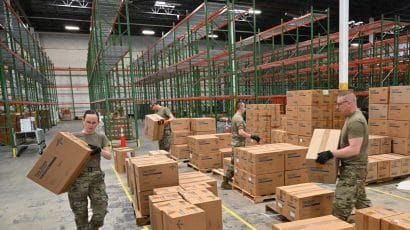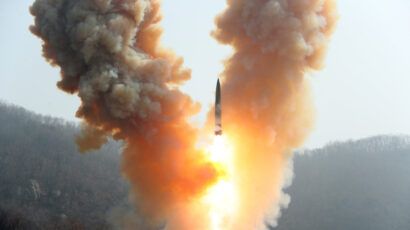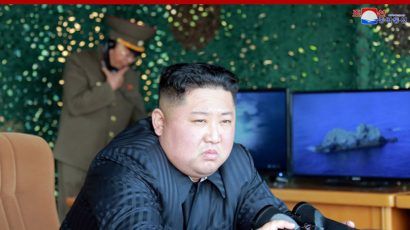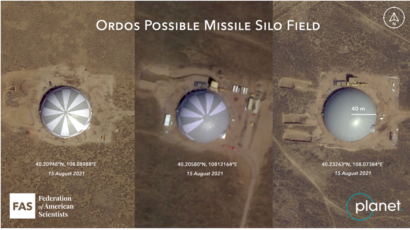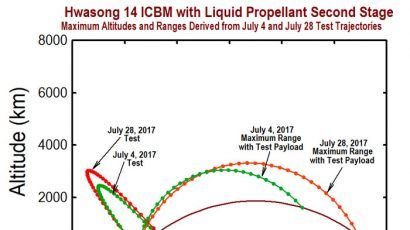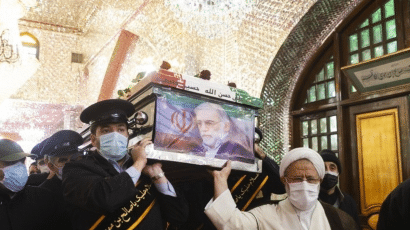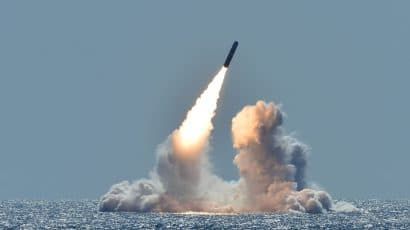Search results for trump
A pragmatic turn in Geneva
The Biden-Putin summit in Geneva did not disappoint the very low expectations set out for it. To move beyond symbolism and signaling, however, the Biden-Putin proclamation has to be translated into practical progress.
Bill McKibben explains what individuals can do to win the climate fight. Together.
Forty years from now, humans will run the planet on sun and wind, because they're such darn cheap energy sources. But if it takes us anything like 40 years to get there, then it’ll be a broken planet we run on sun and wind. "So the climate movement’s job is to catalyze that reaction, to make it happen faster than sheer economics would do," says this prominent chronicler of climate change.
How to reduce both nuclear and pandemic threats after COVID-19
A focus on traditional threats and national security should give way to a greater focus on emerging threats and cooperative global security.
Board moves the Clock ahead
For the first time in the 70-year history of the Doomsday Clock, the Bulletin of the Atomic Scientists’ Science and Security Board has moved the hands of the iconic clock 30 seconds closer to midnight. Read the Science and Security Board’s 2017 Doomsday Clock Statement. Read the press release. Watch the videotaped Doomsday Clock Announcement. … Continued
North Korean nuclear weapons, 2024
North Korea continues to modernize and grow its nuclear weapons arsenal. We estimate that North Korea may have produced enough fissile material for up to 90 nuclear warheads, but has likely assembled around 50.
North Korean missiles: Size does not matter
North Korea recently tested a small ballistic missile that can carry a nuclear warhead. These smaller, solid-fuel missiles matter because—tipped with nuclear warheads or chemical or biological weapons—they threaten South Korea as well as US troops and American citizens in the South.
Worth 1000 words: The Bulletin’s best new media
The Bulletin’s writer’s guidelines stress that “our job is to tell a story.” My job as the publication’s first multimedia editor is to enhance our story-telling toolkit and develop new platforms for our esteemed coverage of existential threats like nuclear weapons and climate change. In 2018 we explored new ways to bring out the facts, science, and meaning … Continued
End the 67-year war
In the end, a peaceful resolution to the North Korean nuclear situation will involve direct negotiations and gestures of good faith by both sides, such as a reduction or a halt of military exercises by the United States, South Korea, and Japan, and a reciprocal moratorium on nuclear weapon and ballistic missile testing by the DPRK. Such steps will generate a great deal of opposition from US defense officials who believe that military might and sanctions are the only forms of leverage that will work against the North Korean regime. But the Agreed Framework and its collapse provide an important lesson about the pitfalls of the pursuit of regime change.
Gen Z: An untapped pool of support for nuclear disarmament
Young people drive social movements. Nuclear disarmament advocates should more aggressively recruit help from Gen Z.
Chinese nuclear weapons, 2024
China is one of the fastest-growing nuclear arsenals among the nine nuclear-armed states. We estimate that China now possesses roughly 500 nuclear warheads, with more in production.
North Korea’s “not quite” ICBM can’t hit the lower 48 states
Even if North Korea is now capable of fabricating a relatively light-weight, “miniaturized” atomic bomb that can survive the extreme reentry environments of long-range rocket delivery, it will, with certainty, not be able to deliver such an atomic bomb to the lower 48 states of the United States with the rocket tested on July 3 and July 28.
Four ways the killing of Iran’s nuclear scientist will undercut US national security
Despite its initial realpolitik appeal, the killing of Iran’s nuclear scientist will likely damage US interests in four ways.
A call to resist the nuclear revival
When formulating its nuclear energy policy, the new Obama administration will have to face the reality that advances in technology, combined with politics and ideology, have made it much harder to prevent nuclear energy use from contributing to the spread of the Bomb. To avoid a future Hobbesian nuclear jungle, the United States and other world governments will need to agree on tougher nuclear controls.
The biosecurity risks not yet addressed
It is a relief to me as a bench scientist, but a positive surprise to me as a biodefense professional, that all of the discussants in this roundtable argued in favor of publicly available pathogen sequences. This is an indication of the closing gap in thinking between life scientists and policy experts. In the past, … Continued
Five assessments of the Fukushima disaster
A survey of books on the catastrophe at the Fukushima Daiichi nuclear power plant, three years after the earthquake and tsunami known collectively as 3/11.
The 10-minute interview: Werner Herzog on Meeting Gorbachev
A short conversation with Werner Herzog—a renowned filmmaker with a penchant for the offbeat—about his aims in making the documentary Meeting Gorbachev.
Some good news about the environment
There actually were some things to celebrate in the past year.
Rethinking a WMD-free Middle East: Start with chemical weapons
Thanks to recent developments in Syria and Iran, there has never been a better opportunity to eliminate chemical weapons from the Middle East.
Pandemic spending will force US defense budget cuts—some of which should come from nuclear weapons programs
Nuclear programs are often overlooked when it comes to budget reductions because many officials and analysts believe that those programs consume only a small part of the overall military budget. A closer analysis demonstrates that this is not the case.



